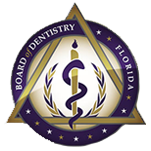We do not respond to voicemails. If we do not answer, we are on the line with another client. Please text or email us. We respond throughout the day or attempt to call again at another time.
Responsibilities and Requirements for Prescribing Schedule II Opioids for California Dental Professionals
This comprehensive course explores the essential elements of safe, effective, and compliant prescribing practices for dental professionals in the state of California. Designed for licensed dentists and healthcare professionals in dental settings, the course delves into the clinical, ethical, and legal responsibilities surrounding medication management, with a strong emphasis on controlled substances, pain management protocols, and risk mitigation.
Participants will gain a clear understanding of the California statutes and regulations governing the prescribing, dispensing, and documentation of drugs, including the use of the CURES (Controlled Substance Utilization Review and Evaluation System) database, DEA registration requirements, and pharmacy board collaboration. The course covers dental office procedures for prescribing analgesics and antibiotics, including the selection of appropriate medications, identifying contraindications, managing polypharmacy concerns, and adjusting prescriptions based on patient-specific factors such as age, medical history, and comorbidities.
A significant portion of the course is dedicated to the management of patients with substance use disorders or those considered vulnerable to medication misuse. Dentists will be equipped with tools to recognize potential signs of drug-seeking behavior, apply best practices for screening and referral, and implement compassionate, ethical approaches to patient care. Guidelines for informed consent, patient education, and documentation are emphasized to support both clinical decision-making and regulatory compliance.
In addition, the course highlights evidence-based pain management strategies, including multimodal pain control, non-opioid alternatives, and post-operative pain treatment protocols designed to reduce reliance on opioids while maintaining patient comfort and safety.
This course will award 2 continuing education hours.
Please see the board approval box for course approvals.Course Objectives
- Understand the principles of safe medication prescribing and patient-centered care.
- Identify and mitigate risks associated with drug interactions and contraindications.
- Apply evidence-based practices to optimize therapeutic outcomes.
- Recognize regulatory and legal requirements in prescription practices.
- Utilize tools and strategies to minimize errors in medication management.
- Enhance communication with patients to ensure medication adherence and safety.
- Understand the California statutes and rules that pertain to prescribing controlled substances.
- Stay informed about advancements and updates in pharmacology and prescribing guidelines.
- Apply multimodal pain management strategies appropriate to dental treatment settings.
- Implement ethical prescribing practices when managing patients at risk for substance use disorders.
- Understand California dental office protocols for dispensing medications and maintaining compliance.
- Use the CURES database and proper documentation techniques to support responsible prescribing.
Board Approvals
National Approvals
-
 Academy of General Dentistry (AGD) (PACE)Bayside Continuing Education and Development (Nationally or Locally) Approved by PACE Program Provider for FAGD/MAGD credit. Approval does not imply acceptance by any regulatory authority or AGD endorsement. 10/01/2024 - 09/30/2026 Provider ID# 430829
Academy of General Dentistry (AGD) (PACE)Bayside Continuing Education and Development (Nationally or Locally) Approved by PACE Program Provider for FAGD/MAGD credit. Approval does not imply acceptance by any regulatory authority or AGD endorsement. 10/01/2024 - 09/30/2026 Provider ID# 430829
State Approvals
-
 Florida Board of DentistryProvider number 50-204-3
Florida Board of DentistryProvider number 50-204-3 -
 Florida Board of Dentistry-Dental LaboratoryProvider number 50-204
Florida Board of Dentistry-Dental LaboratoryProvider number 50-204 -
Georgia Board of DentistryCE Provider approved by the American Dental Association and/or the National Dental Association and/or their constituent and component/branch associations
Information
- Content Level: Intermediate
- Course Format: This course is offered as a self-paced distance learning format (reading-based online activity)
- System Requirements: This course is offered online. Internet connection required.
- Course Completion Information: To earn continuing education credit, professionals must register and pay the fee for the course. They must read the content and demonstrate understanding by earning a minimum score of 70 percent on testing materials. The certificate of completion will be able to be downloaded after the above is completed. Refunds will be granted upon request with the withdrawal of credit for the course. For questions, concerns, or to request special accommodations, please call 866-863-4225 or email ContactUs@BaysideCEU.com.
- CEBroker Course ID: NA
- Credit Hours: 2


